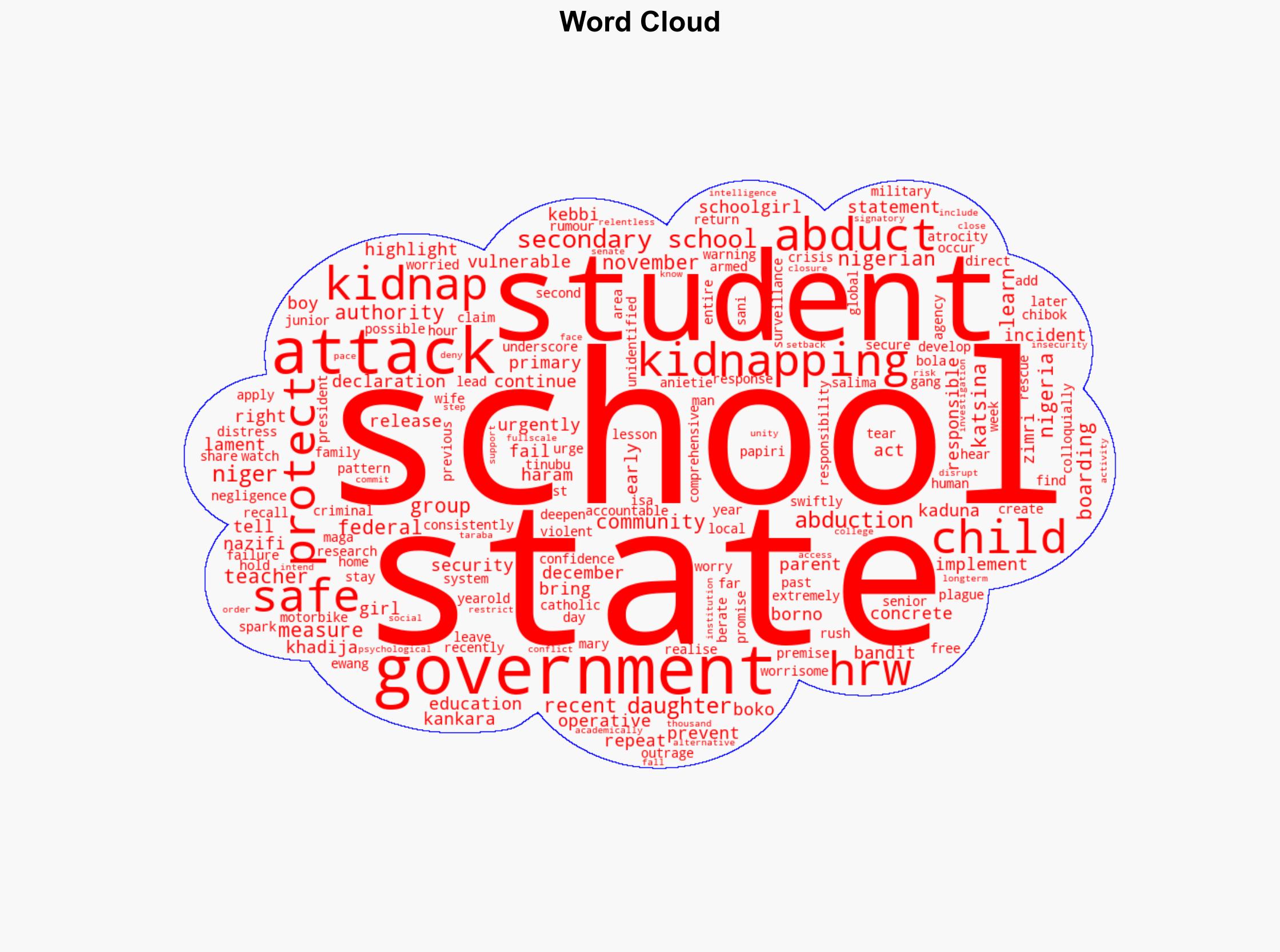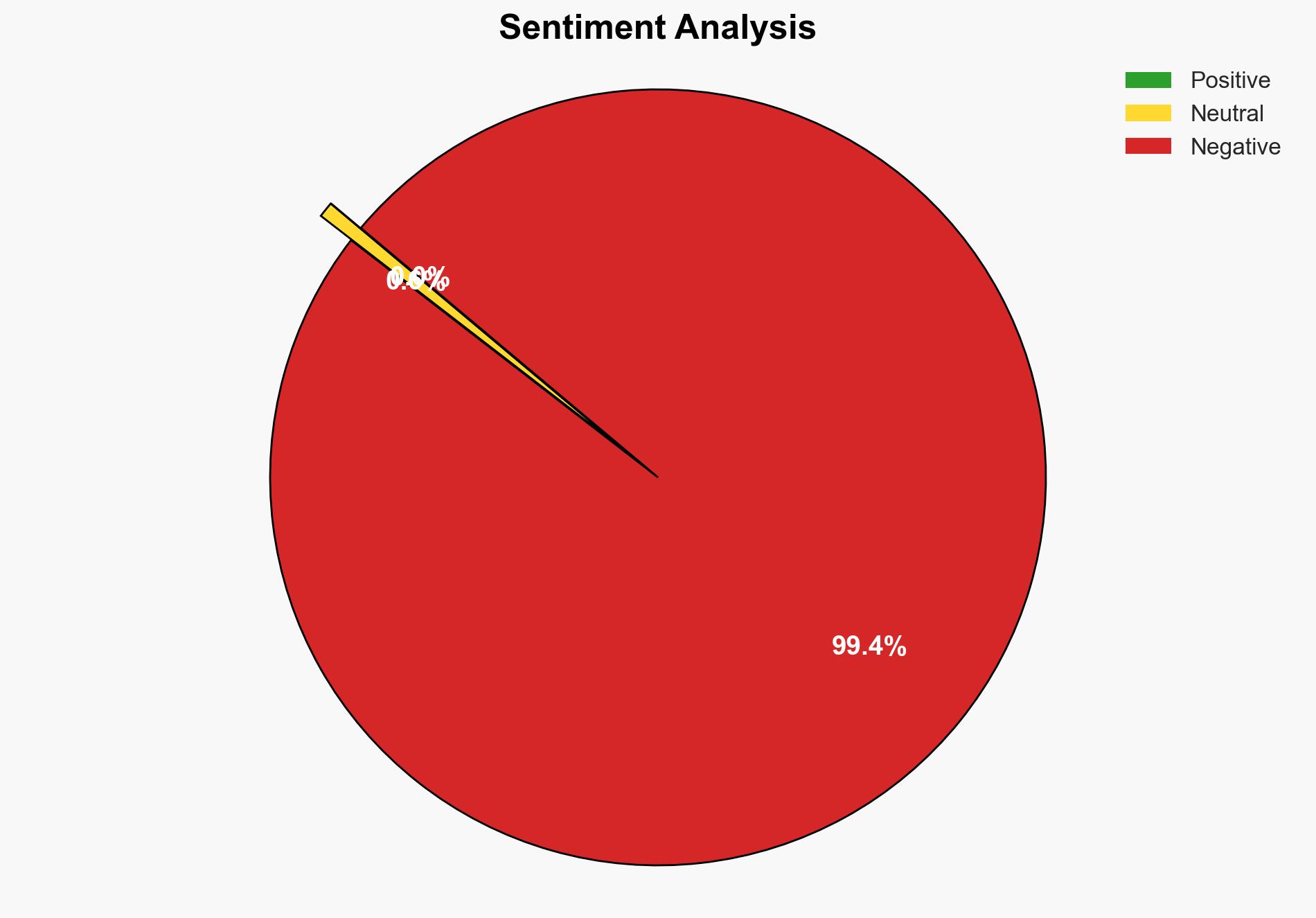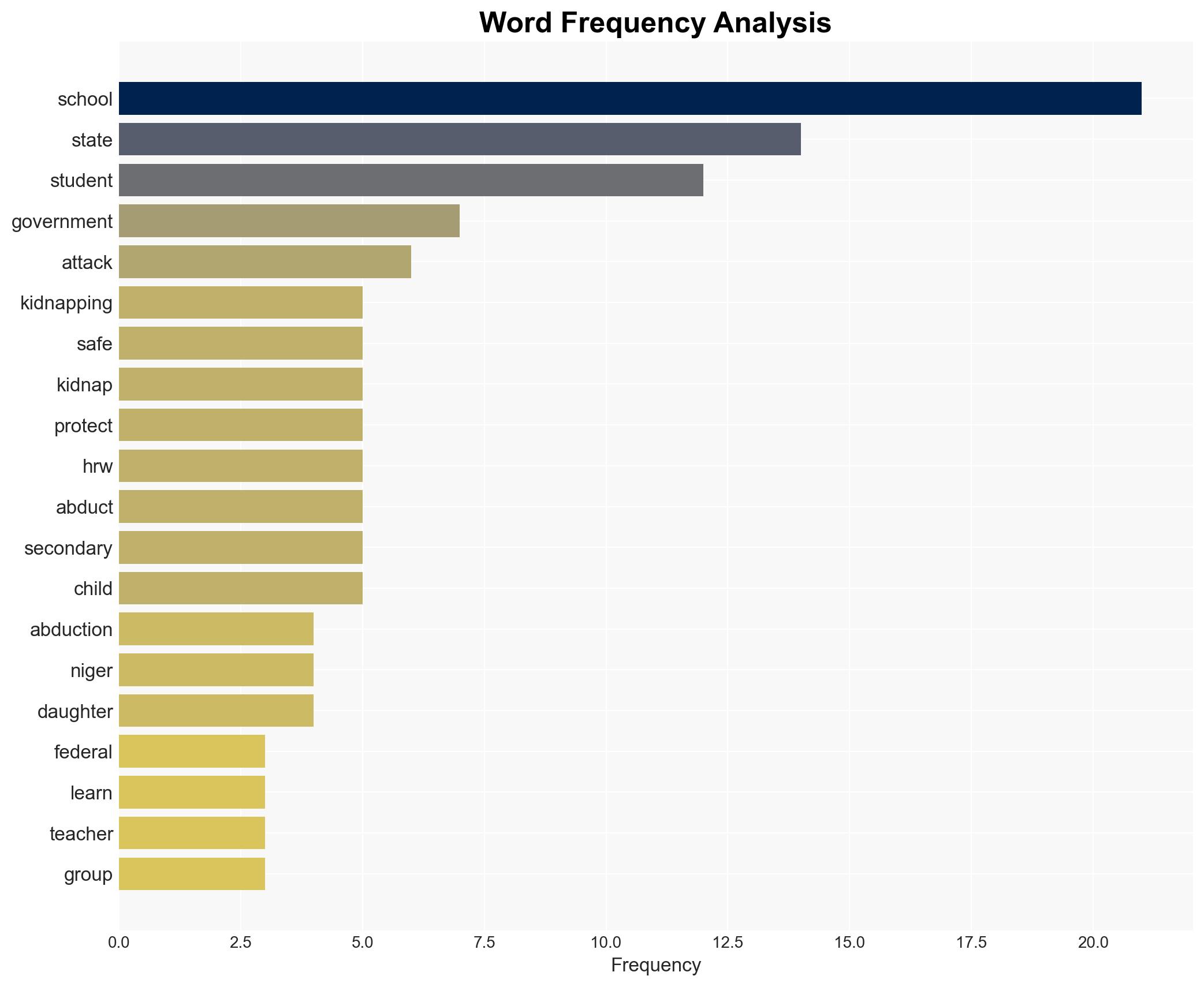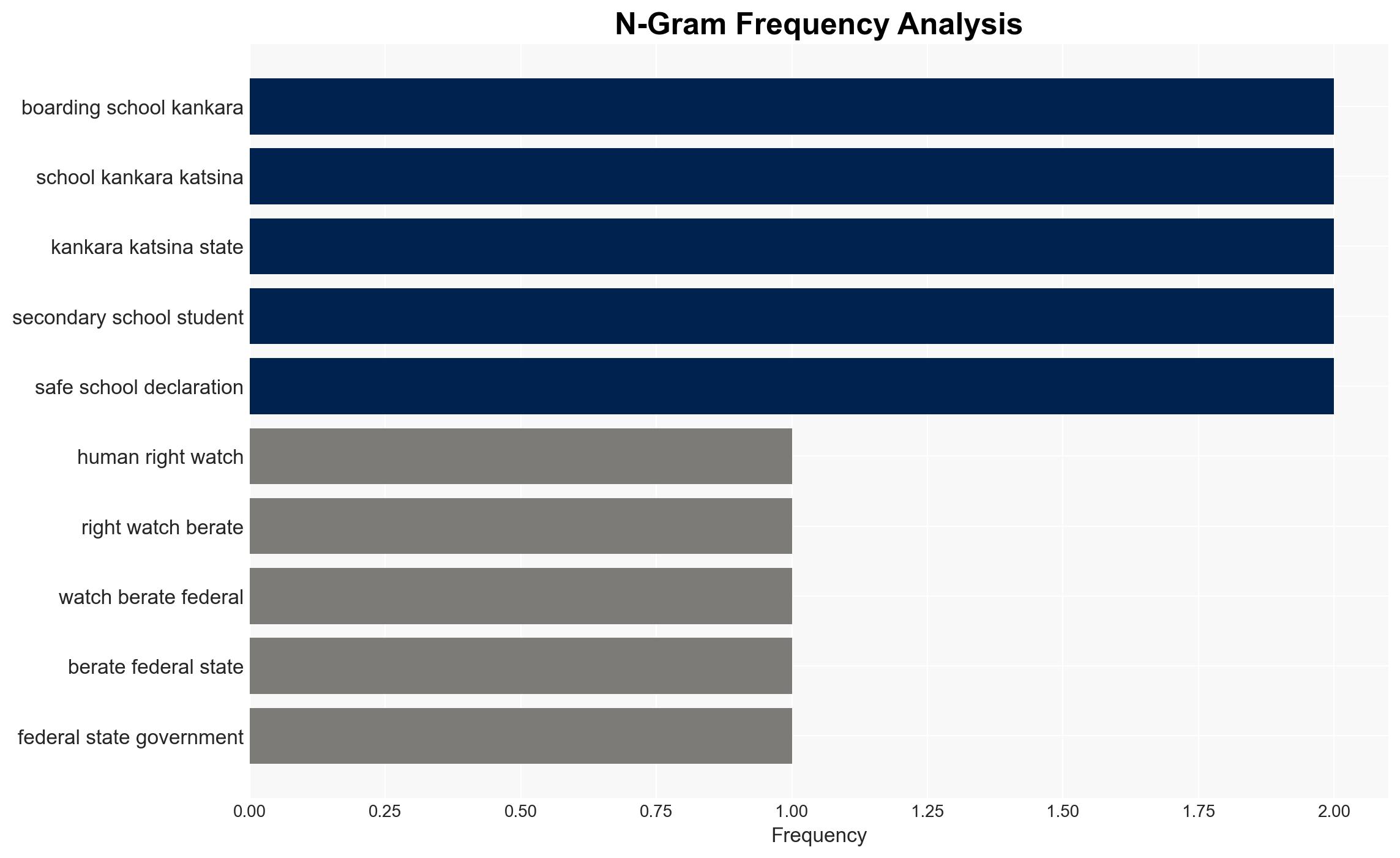Rights Group Criticizes Nigeria for Inaction on Recurring School Kidnappings and Vulnerable Communities
Published on: 2025-11-26
AI-powered OSINT brief from verified open sources. Automated NLP signal extraction with human verification. See our Methodology and Why WorldWideWatchers.
Intelligence Report:
1. BLUF (Bottom Line Up Front)
There is a high confidence level that the Nigerian government’s failure to implement effective security measures and learn from past school kidnappings is contributing to the ongoing vulnerability of students and teachers. The most supported hypothesis is that systemic negligence and inadequate resource allocation are the primary drivers of repeated school abductions. Recommended actions include the immediate implementation of comprehensive security protocols and community engagement strategies to prevent future incidents.
2. Competing Hypotheses
Hypothesis 1: The Nigerian government’s failure to prevent repeated school kidnappings is primarily due to systemic negligence and inadequate resource allocation.
Hypothesis 2: The persistence of school kidnappings is driven by external factors such as the increasing sophistication and boldness of criminal gangs, which outpace government response capabilities.
Hypothesis 1 is more likely given the consistent pattern of inadequate responses and failure to implement lessons learned from previous incidents, as highlighted by Human Rights Watch. Hypothesis 2, while plausible, does not fully account for the government’s repeated failures to establish effective preventive measures.
3. Key Assumptions and Red Flags
Assumptions: It is assumed that the Nigerian government has the capacity to implement effective security measures but lacks the political will or prioritization to do so. It is also assumed that the information provided by Human Rights Watch is accurate and unbiased.
Red Flags: The lack of transparency regarding the allocation and use of the Safe School Fund raises concerns about potential corruption or mismanagement. The repeated nature of these incidents suggests possible complacency or complicity within local security forces.
4. Implications and Strategic Risks
The continued failure to address school kidnappings poses significant risks, including the erosion of public trust in government, increased regional instability, and the potential for international condemnation. The disruption of education could lead to long-term socioeconomic impacts, exacerbating poverty and hindering national development. There is also a risk of these incidents being exploited by extremist groups to further destabilize the region.
5. Recommendations and Outlook
- Immediate deployment of security personnel to vulnerable areas and establishment of early warning systems.
- Engagement with local communities to foster intelligence sharing and build trust.
- Audit and transparent reporting on the use of the Safe School Fund to ensure accountability.
- Best Scenario: Successful implementation of security measures leads to a significant reduction in school kidnappings.
- Worst Scenario: Continued inaction results in increased frequency and severity of abductions, further destabilizing the region.
- Most-likely Scenario: Incremental improvements in security, but persistent challenges due to systemic issues and resource constraints.
6. Key Individuals and Entities
President Bola Tinubu, Anietie Ewang (HRW Researcher), Nigerian Federal and State Governments, Boko Haram, and criminal gangs colloquially known as “bandits.”
7. Thematic Tags
Structured Analytic Techniques Applied
- Cognitive Bias Stress Test: Expose and correct potential biases in assessments through red-teaming and structured challenge.
- Bayesian Scenario Modeling: Use probabilistic forecasting for conflict trajectories or escalation likelihood.
- Network Influence Mapping: Map relationships between state and non-state actors for impact estimation.
Explore more:
National Security Threats Briefs ·
Daily Summary ·
Support us





